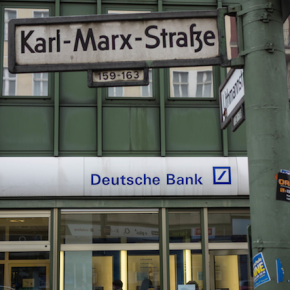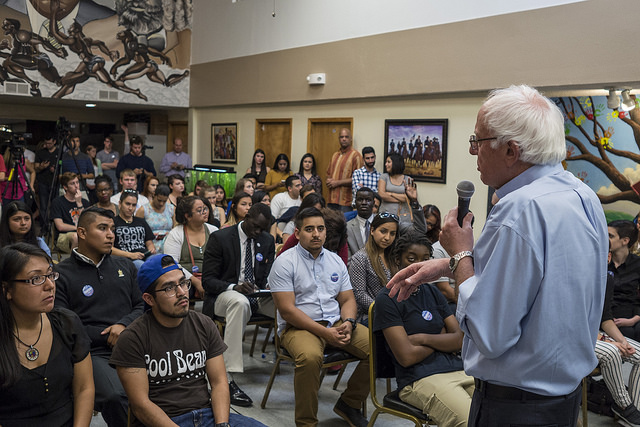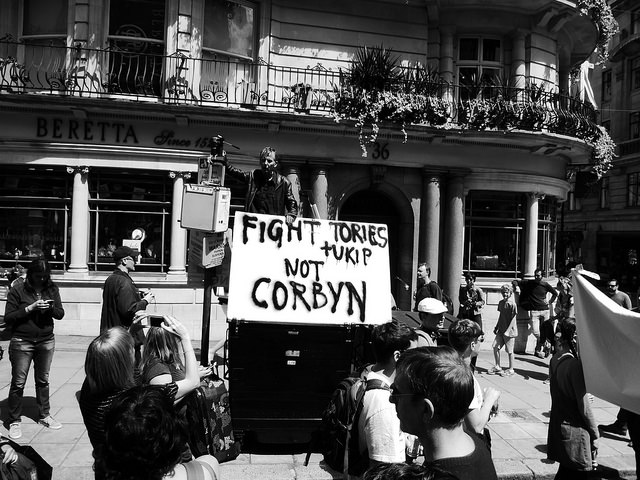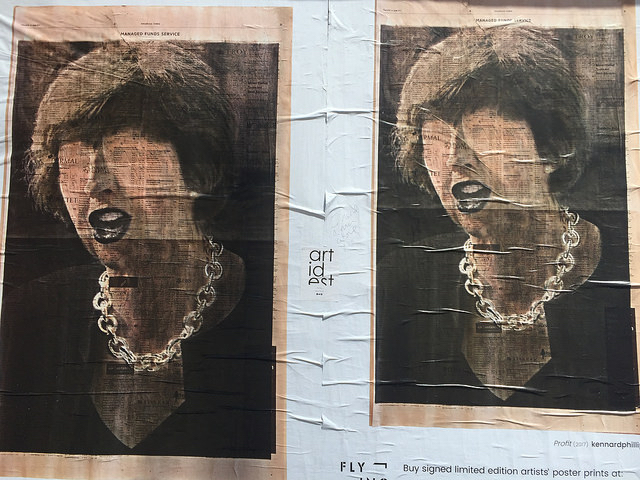I have wistful memories of the United Arab Emirates. I spent much of my childhood gazing over the sand dunes, and playing knockoff Super Nintendo games that couldn’t save properly. I felt safe and fulfilled in the paradisaical oasis. It wasn’t just that we were wealthier, although that was part of it. Our lives felt genuinely fulfilling. We lived in a community of middle-class South Asian Muslims who felt the same. I used to wake up with my mother placing a straw in my mouth, so I could drink a glass of mango juice.
There was no time for any of that when we moved to Canada, and the War on Terrorism started. The more we felt socially rejected, and economically insecure, in the West, the more we longed for our comparatively luxurious lives in the Emirates. Our spacious apartment in Al-Ain was the last time that we felt like we could breathe. It was only as a teenager that I learned better. My ability to wake up sipping juice was supported by the sweat and toil of huge masses of nameless South Asians who were carted in from their gated camps at the edge of town. They usually lived eight people to a room, worked at all hours, and routinely had their passports confiscated. This was no secret. It was accepted, often begrudgingly, as an integral part of Emirati life.
After the United Arab Emirates was built from the British-era Trucial Sheikhdoms in 1971, it was ruled by a group of emirs who desperately wanted to modernize the country. Luckily, they received a massive windfall from the 1973 oil shock, and now only required the human capital to transform their feudal backwaters into glitzy city-states. The Emirati population was so small that overseas labour was necessary, and so two immigrations were encouraged: one of expat professionals, and another of migrant labourers. The arrangement seemed like it benefited everyone. Wealthier expats had a chance to make quite a lot of money in a few years. Countries like Pakistan, Nepal, India, and the Philippines could depend on the Gulf to absorb their unemployed and pay them slightly higher wages. This spared these countries the headache of investing in jobs back home. Once they started working, those labourers could also send home billions of dollars in remittances to support their families. Everyone wins.
Interestingly, South Asians came to the UAE through both pathways. My father used his advanced education to obtain a research position at a local university. People like him morphed into a tiny middle class that was used as a springboard for moving to other Western countries. This was because Emirati jobs are mostly based on short-term contracts, which includes residency visas, and citizenship is infamously difficult to obtain. As we built our privileged lives, swarms of South Asian taxi drivers, construction workers, and retail employees continued to flood the country. It was their job to take the desert and make it bloom. According to government statistics, 88.5% of the UAE’s population was foreign-born in 2011, much of that percentage being lower-class labourers.

Thinking back, the UAE seems disturbingly similar to the world portrayed by Fritz Lang’s Metropolis. Our comfortable lives were juxtaposed by scenes of squalor in the lower-class, and we blocked out the reality of how much violence was required to sustain our expat bubble. Westerners are often shocked at what the labourers are put through, but anyone who has lived in the UAE’s upper-class will tell you that people mostly try to ignore it. Emirati elites (expats included) focus on their social calendars and debates about which European capitals are best. It’s a bit of a buzz-kill when someone starts talking about work conditions, sex trafficking, or how the predominantly Filipino maids are constantly subjected to physical and sexual abuse.
Ignoring things doesn’t mean that it doesn’t engage with feelings of guilt, though. Many expats have become especially callous towards the labourers as a coping strategy. This is what leads to situations where they start telling jokes when Indian workers jump off skyscrapers. People are bothered by the inequality, but don’t feel as though there is anything to be done about it. Black humour becomes a way to vent private insecurity. Part of the problem is that liberal-minded elites secretly fear expressing their dissatisfaction, because it means facing how little it seems can actually be done. It is simple enough to say that reforms need to be passed. However, there is a limit to what legislation can do about systemic issues. Husain Abdulla of Americans for Democracy and Human Rights in Bahrain described the problem in the Miami Herald. “One thing Gulf countries are good at passing is legislation. However, in implementing those laws — which look very good on paper, look humanitarian, reasonable and up to international standards — we see little to basically nothing.”
Human Rights Watch blasted the Emirates in a scathing 2013 report that outlined deplorable conditions, all of which are officially illegal. Exploitative “recruitment fees” are still common, being used to cover visa and relocation costs that Emirati law requires employers to pay. Workers often arrive in the UAE so deeply in debt that they have to start working it off, which becomes even more difficult when their wages are lower than advertised, and costs like food and telephone calls home are taken into account. The result is indentured servitude by another name. This occurs despite the fact that the UAE is a signatory of the Palermo protocols, which condemn forced labour, and are legally-binding.
It goes on. There is a minimum wage on the books, but it has never been implemented by the Ministry of Labour. Fairer contracts and mandatory paying systems have also never been implemented. Draft labour laws are so backwards that the one that deals with domestic workers has a “revealing secrets” penalty of 100 000 dirhams ($27 225.70) and six months jail time. They also don’t reform the Minister of Labour’s power to unilaterally end strikes, and the virtual non-existence of collective bargaining rights. The Ministry of Labour has said that it would allow unions, but it has taken no steps towards realizing them. It probably wouldn’t have mentioned unions at all if it didn’t have to react to the 2006 workers’ riots. The government had its back to the wall, and surrendered a meaningless concession. It was telling that a few weeks after promising unions, the UAE deported nearly everyone involved in the riots, which it continues to do at even the scent of organized labour.
Human Rights Watch was particularly critical of an immense project called Saadiyat Island in Abu Dhabi. The project, which features a satellite campus of New York University, recently caused the school a great deal of embarrassment due to terrible working conditions and a strike that was met by a violent crackdown. The one positive reform has been a decade-old midday working ban that is the most strictly-enforced labor regulation in the Gulf. Starting on June 15, work stops for 2.5 hours in the UAE, during the hottest summer hours. This is the shortest length ban of any Gulf state.
The counter-argument is that the UAE simply needs to start enforcing the laws it passes. However, it is not that easy. There is a reason that the UAE depends on a kafala system that viciously polices its labour underclass. Kafala sponsorship creates an atmosphere of violence that is the basis of the country’s entire social and economic structure. It allows for elites to dominate their subordinates, and also secures migrant workers as a permanent source of cheap labour. This has been the case for decades. At no point in the history of Emirati modernization has it ever occurred without human rights violations against its labour underclass.
The Metropolis comparison makes this easier to visualize. Regional science-fiction author Sophia al-Maria (who calls herself “Sci-Fi Wahhabi”) argues that the Gulf monarchies all have a fixation with social progress that occurs without consideration of its human cost. Her work is inspired by the way that the region has used oil money to fuel a pointless quest of unending modernization. Society becomes churned and reforged almost for the sake of it. People either lose themselves in the whirlwind of constant transformation and innovation, or they are killed performing the physical labour needed to sustain it over time. She calls this “Gulf Futurism,” which is a cheeky way of saying that if the Italian Futurists were devout Muslims, they would have built cities like Dubai.
The term spotlights the fact that countries like the Emirates have a philosophical problem. The state’s ambitions are at odds with basic morality. The Gulf is full of elites who have used their immense wealth to chase high society and an ill-defined notion of progress. Oil money was used to build what is essentially a science-fiction dystopia, complete with extreme stratification and an impending sense of collapse. Sometimes, I’m not sure what to do with my happy memories given these realities. They are no less wonderful, but have to be placed in context. My sense of family and community was built on a deeply violent social foundation. It doesn’t have to be that way, but the UAE cannot simply adopt progressive regulation to solve the problem. It has to fundamentally reevaluate its core values.
The Emirates needs to reexamine its ruling mantra of “progress at any cost.” This could mean doing away with rampant consumerism and materialism altogether. Instead, its innovative impulses would be directed towards a broader social and economic transformation. This seems unlikely. The UAE is unique in that its contracted labour force (that has no independent residency rights) and lingering monarchies make it one of the world’s most authoritarian marketplaces. At the same time, it is more likely to happen now than ever before. The Arab Spring has changed regional politics by empowering grassroots mobilization, and one of the unexpected results has been that even Western liberals are willing to criticize inequality in countries like the UAE. The country could still be overhauled in a major way. If it isn’t, then the image is depressing. Future South Asian children like me enjoying their mango juice, oblivious to the fact that their impoverished cousins are leaping from the constantly morphing Dubai skyline.
Photographs courtesy of monikalevinski and Iyad Tibi. Published under a Creative Commons License.






1 comment